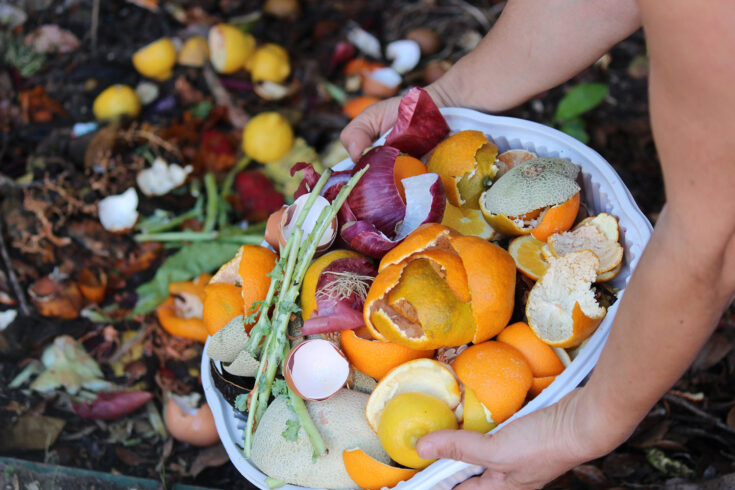Food waste, it’s everyone’s problem
It may sound hard to believe, but between the start and end of the whole food supply chain, we waste one third of all food produced for human consumption.
That means from the point when food begins its journey during the initial agricultural production process to when it’s ready for consumption, we waste a massive 1.3 billion tonnes of food globally.
And the UK is a significant contributor. In fact, according to a report by the Waste and Resources Action Programme (PDF, 870KB), in 2018 alone the UK produced approximately 9.5 million tonnes of food waste. This was worth approximately £19 billion, and resulting in more than 25 million tonnes of greenhouse gas emissions.
Food waste is a global issue that comes at a significant economic cost to:
- producers
- processors
- retailers
- households.
Not to mention the additional costs associated with the collection, management and treatment of food waste.
Beyond the economic impact, food waste severely impacts the environment in which we live. Responsible for eight to ten per cent of all greenhouse gas emissions, food waste not only contributes to climate change, it also represents the waste of scarce and precious resources such as:
- land
- water
- energy.
The UK in action, creating a circular economy in the food supply chain
While every citizen in the UK should do what they can to reduce avoidable food waste, there is more we can do to make the most out of food, and that’s where a circular economy comes in.
Moving towards a circular economy means keeping resources in use for as long as possible, extracting maximum value from them, minimising waste and promoting resource efficiency.
To achieve the shift towards a circular economy, the UK government has introduced a legislative framework, namely the Circular Economy Package. This identifies steps for the reduction of waste while establishing an ambitious and credible long-term pathway for waste management and recycling.
Producing green chemicals from the circular economy
While the move towards a more circular economy offers clear opportunities for sustainable growth and prosperity here in the UK, it also requires clear implementation pathways that are underpinned by sound research evidence.
Our research group at the University of Nottingham focuses on the use of microwave technology for sustainable processing.
As microwaves are powered by electricity, they can use renewable energy sources and therefore play a key role in our society’s move away from fossil fuels and towards net zero carbon emissions.
One of the main aims of our research, however, is to apply microwave technology to extract valuable products from plant-based food waste.
With funding from the Biotechnology and Biological Sciences Research Council (BBSRC), we set up a collaborative research project with the University of Reading and a UK potato producer, which sought to do just that.
There are large quantities of underutilised co-products from the UK food industry, such as out-of-spec potatoes and potato pulp.
Experts at the University of Reading are interested in developing novel prebiotics from these materials. But currently there isn’t an industrial process that’s capable of producing large enough quantities of these dietary beneficial ingredients to develop novel prebiotic dietary supplements or food additives from them.
In simple terms, prebiotics promote gut health and can lead to a wide range of health benefits. But it’s very difficult to get enough from a normal healthy diet.
Development of a prebiotic food supplement
The development of a prebiotic food supplement from food waste could therefore not only improve gut health, it could also help to address the food waste challenge at the same time.
We used BBSRC funding to firstly prove the concept that the target extract (pectins containing arabinose and galactose side chains) could be extracted using our microwave technology.
We then designed and built a larger scalable process and applied it to potato waste. And for the very first time we are able to produce the target materials at large enough scale to use in human trials.
This is an exciting advancement in our research because we can now extract sufficient quantities to test the prebiotic activity of extracts from a whole range of different food waste materials. And we can do it with just electrical power and water. No toxic chemicals are used at all.
Now that we have this capability, we are exploring options to progress the technology to commercialisation.
The need for a multidisciplinary approach
If one thing is clear, it’s this, tackling the issue of global food waste is going to require a wide range of multidisciplinary partners coming together. They will need to carry out a diverse mix of actions that span the social, technological, economic, environmental and political landscapes to name but a few.
And here at the University of Nottingham, we’re working hard to develop those all-important multidisciplinary partnerships through our Total Food 2022 conference.
With a focus on maximising value from the food chain, we’re looking forward to discussing and progressing our shared goals with industrialists, academics, policymakers and charity leaders from across the UK.
Visit the University of Nottingham Total Food 2022 website.
Top image: Credit: Yesim Sahin, iStock, Getty Images




